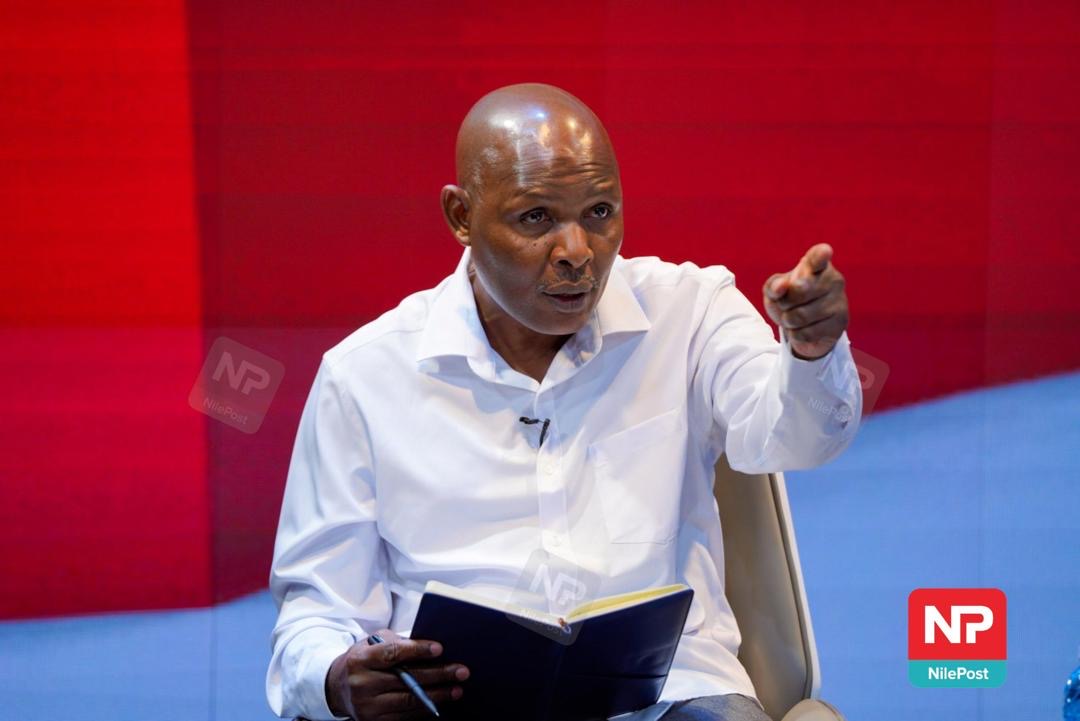Outspoken political analyst and former chief intelligence officer Charles Rwomushana has raised pressing questions about Uganda’s handling of opposition figures, particularly the continued detention of four time presidential candidate Kizza Besigye.
Speaking during NBS Barometer on Tuesday, Rwomushana asked: “What is the way out? Can they negotiate with the state to secure the release of Dr. Kizza Besigye? Samson Mande declared war on President Museveni, yet he is now in Uganda as a free man.”
Rwomushana further emphasized that the state, when feeling threatened, often prioritizes control over legal norms or public sentiment, highlighting concerns about Uganda’s adherence to democratic principles.
As of Sunday, 16 November 2025, Besigye and his co-accused, Lutale, have spent exactly 365 days in detention following their abduction in Nairobi on 16 November 2024 and subsequent transfer to Kampala.
They were arraigned before the General Court Martial on charges relating to national security and unlawful possession of firearms and ammunition, and have been held at Luzira Maximum Security Prison while multiple court proceedings have produced little progress toward trial.
High Court Justice Rosette Comfort Kania rejected their first formal bail application in April 2025, despite acknowledging that legal thresholds for release had been met.
The application cited Besigye’s age (68), deteriorating health, and prolonged pre-trial detention exceeding 150 days. Justice Kania ruled against release, citing Besigye and Lutale’s “high standing in society” and the gravity of the treason charges as potential risks to ongoing investigations.
Her ruling drew immediate criticism from constitutional lawyers, who argued it contradicted Ugandan bail law and suggested possible external influence on judicial processes.
The defence subsequently filed a mandatory bail application in May 2025 before Nakawa Chief Magistrate’s Court, arguing that the 180-day constitutional limit for pre-trial detention in capital offences had been exceeded.
The magistrate declined jurisdiction under the 2022 bail guidelines, reserving the matter for the High Court.
The case was then assigned to Justice Emmanuel Baguma of the Criminal Division of the High Court. On 8 August 2025, Justice Baguma dismissed the mandatory bail application, ruling that the 180-day countdown began on 21 February 2025 when Besigye and Lutale were formally charged with treason at Nakawa Chief Magistrate’s Court—a position at odds with the defence’s argument that their lawful remand had been continuous since November 2024. A renewed standard bail petition remains pending before Justice Baguma amid calls for his recusal over alleged bias, resulting in a deadlock.
The one-year mark of Besigye’s detention has reignited debates over political freedoms, judicial independence, and the treatment of opposition leaders in Uganda.
Besigye, who has faced multiple arrests and legal battles over more than two decades including treason charges in 2005, allegations of sexual assault later dismissed, arrests during the 2011 Walk-to-Work protests, and restrictions on political activity during election periods—remains a central figure in opposition politics despite stepping back from presidential contests after 2016.
Analysts warn that his continued detention could have far-reaching consequences for Uganda’s political stability, particularly as the country approaches its next electoral cycle.
Rwomushana’s remarks underscore the persistent tension between the state and political opposition, and the growing public scrutiny over how Uganda balances security, law, and fundamental freedoms.


